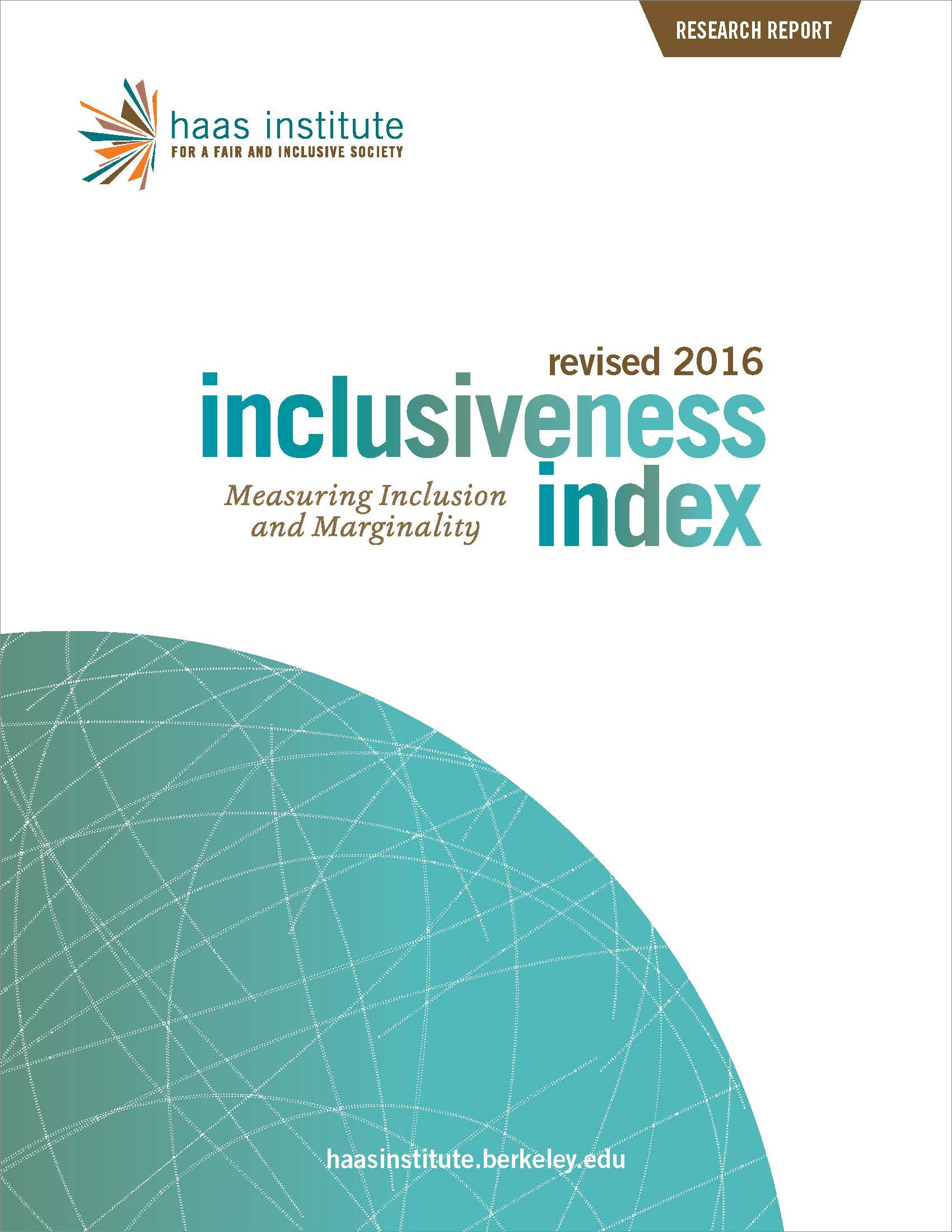The Haas Institute for a Fair and Inclusive Society proudly announces the first edition of their annual publication, entitled Inclusiveness Index 2016: Measuring Inclusion and Marginality. A premier research initiative for the Institute, this report represents the Institute’s efforts to measure and more deeply understand the dynamics of inclusion and group-based marginality within the United States and across the globe. The report holistically examines the experiences of groups across a range of social dimensions, including gender, race/ethnicity, religion, disability, and sexual orientation.
Developed under the leadership of Institute Director john a. powell, and authored by Stephen Menendian, Assistant Director, Elsadig Elsheikh, Global Justice Program Director, and Samir Gambhir, Geographic Information Systems Researcher and Manager of the Equity Metrics program, the Inclusiveness Index is a unique measure of inclusivity with a focus on policy, laws, and institutions rather than economic forces that shape inequality. Menendian notes, “In our Index, the poorest nations on the planet are capable of faring best in terms of inclusivity, while the wealthiest are capable of faring the worst.”
Haas Institute Director john a. powell emphasizes the importance of this initiative for our current moment, “We live in a time where it is critical to understand underlying structural conditions of exclusion not just nationally, but internationally, so that we may learn from one another and achieve transformative change that will be inclusive of all humanity.” This index intends to spark conversations and generate further inquiry into how and why some places, communities, and nations are more inclusive than others.
Based on six core indicators, chosen by the research team for which data sets are available, countries are ranked relative to one another. The report also delves behind the data and surfaces critical trends, both troubling and hopeful, that deserve special attention. Contributor Elsadig Elsheikh adds that “the ‘findings and themes’ section looks beyond the numbers to tell stories that can’t be reduced to data.”
This 42-page index includes maps and infographics that highlight key themes and represent the critical findings. The scoring of countries conveys a holistic assessment of institutional inclusiveness while the report illuminates global trends such global migration, income inequality, marriage equality, violence against women, and religious discrimination.
The researchers are hosting a webinar to discuss the findings on September 28, 2016 from 12:30 p.m. to 1:30 p.m. PST.
The report, methodology, data sets, maps, and other supplemental materials are available on the Haas Institute website.
The index is available online for download at: http://belonging.berkeley.edu/inclusivenessindex.
###
Media Contact:
Rachelle Galloway-Popotas
510-642-3326
haasinstitute@berkeley.edu
###


